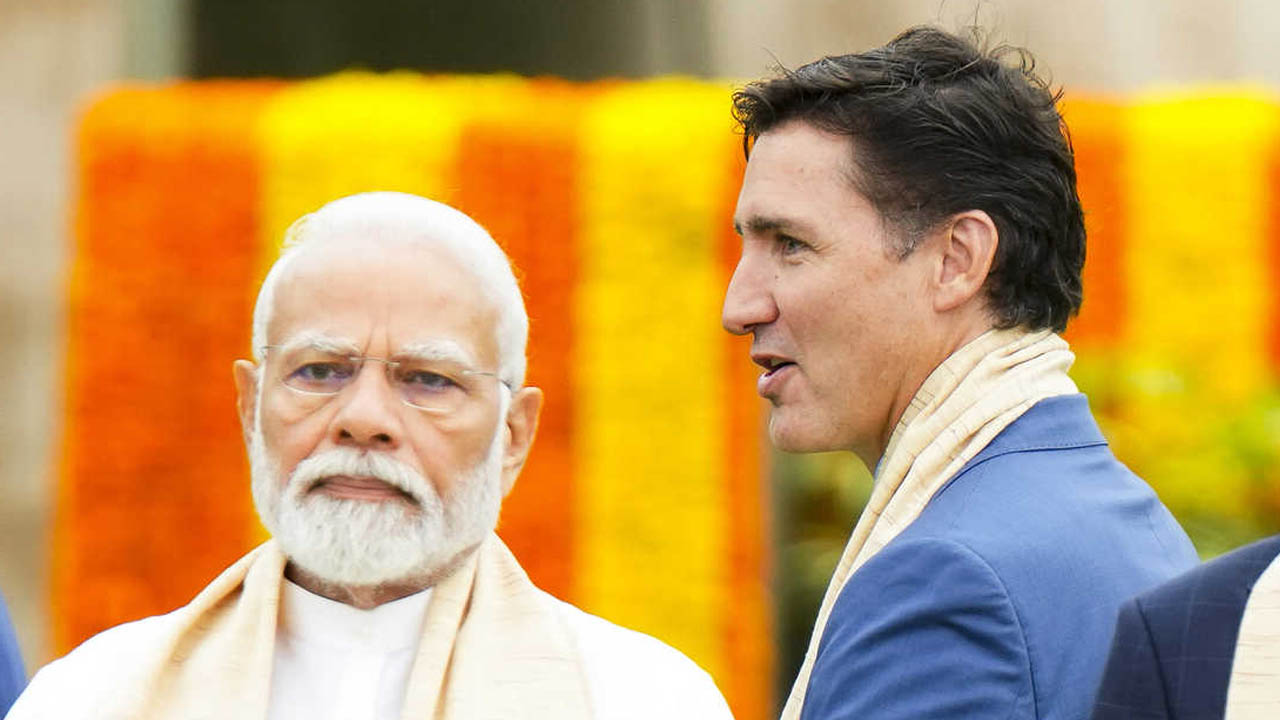‘Pro-Khalistan’ Slogans during Trudeau’s Speech: During a public event attended by Canadian Prime Minister Justin Trudeau in Toronto, ‘pro-Khalistan’ slogans were raised, causing uproar and prompting a swift response from India.
Summons to Canadian Envoy: Canadian Deputy High Commissioner Stewart Wheeler was summoned to the Ministry of External Affairs (MEA) in India to address the issue. The Indian government strongly protested the raising of separatist slogans at an event where Trudeau was speaking.
Expressing Deep Concern: India conveyed its deep concern over the incident, emphasizing the disturbing nature of allowing such actions to continue unchecked. The MEA expressed dismay at the political space given to separatism, extremism, and violence in Canada, warning of its adverse impact on bilateral relations and the safety of Canadian citizens.
Event Context: The pro-Khalistan slogans were heard during the Khalsa Day (Vaisakhi) celebration in Toronto, coinciding with Trudeau’s speech reaffirming Canada’s commitment to protecting the rights and freedoms of the Sikh community.
Strained Relations: The incident comes amid strained relations between India and Canada, exacerbated by Trudeau’s previous allegations of Indian involvement in the killing of Khalistani separatist Hardeep Singh Nijjar in British Columbia.
Trudeau’s Reassurance: Despite the disruptions, Trudeau reiterated his government’s dedication to defending the rights and freedoms of the Sikh community in Canada. He emphasized the importance of diversity and inclusivity, pledging to enhance security measures at community centers and places of worship, including Gurdwaras.
Differing Perspectives: While Trudeau’s speech focused on promoting inclusivity and safeguarding religious freedom, videos surfaced showing loud chants of pro-Khalistan slogans in the background. This contrast highlights the complexities of addressing diverse perspectives within Canada’s Sikh community and managing diplomatic relations with India.
Security Measures: Trudeau’s assurance of bolstering security measures at Sikh community centers underscores Canada’s commitment to protecting religious freedoms and ensuring the safety of its citizens.
Ongoing Diplomatic Strains: The incident further strains diplomatic relations between India and Canada, particularly in the aftermath of Nijjar’s killing and the subsequent accusations leveled by both countries.
Continued Dialogue Needed: As tensions persist, maintaining open lines of communication and fostering mutual understanding is essential to navigate the complexities of bilateral relations and address underlying concerns effectively.
Impact on Bilateral Trade and Cooperation: Beyond the immediate diplomatic fallout, the incident could have implications for bilateral trade and cooperation between India and Canada. Both countries have significant economic ties and collaborate on various fronts, including technology, education, and healthcare. However, strained diplomatic relations could potentially hinder progress in these areas and dampen investor confidence.
International Implications: The incident also draws attention to the broader issue of separatism and extremism within diaspora communities worldwide. Governments around the globe must navigate the delicate balance between protecting citizens’ rights to free expression and preventing actions that incite violence or threaten national security. Cooperation and coordination among nations are crucial in addressing transnational threats and maintaining global stability.
Future Course of Action: Moving forward, India and Canada may need to engage in constructive dialogue and diplomacy to address underlying grievances and rebuild trust. This could involve diplomatic exchanges, confidence-building measures, and efforts to address root causes of tensions, such as historical grievances or misperceptions. Ultimately, a commitment to mutual respect, understanding, and cooperation is essential for fostering enduring peace and stability in the region and beyond.
(With inputs from agencies)








